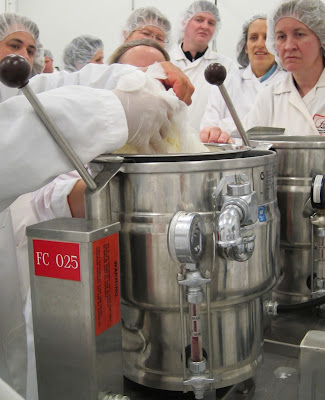Melipal Winery, Argentina
Building its brand with honesty and pride in the people, the land, and the vines
At the Melipal winery in Mendoza, Argentina, the Aristi family is establishing their brand with a focus on quality and personal involvement.
The next generation
Ignacio Aristi is an agronomist who has always made his living from the land, watching the weather and the soil, trying to predict the harvest. But his work involved commodities. It wasn’t hands-on, and he often talked to his family about his desire to play a more active role in developing a value-added business.
In 2001, Ignacio visited Mendoza, Argentina’s premier wine-growing region, and recognized that a winery would provide an opportunity to maintain his commitment to the land while also shaping a distinctive brand that reflected his family’s values and personality.
It takes a long time to establish a winery and make it profitable, but that was okay because Ignacio was building for the next generation, his five children.
Ownership equals responsibility
I met with Irene Aristi, Melipal’s general manager, in May when she was in Saskatoon with Doug Reichel of Doug Reichel Wine Marketing Inc. to take part in Top of the Hops. She described the steps her family took to establish the winery. While Ignacio maintains overall responsibility, it is his children who are directly responsible for the winery.
Clarisa Aristi and her husband Santiago Santamaria were the first family members to move to Mendoza. At first they took care of everything that needed doing, but they are now able to focus on sales and marketing. Clarisa, Irene’s sister, is a graphic designer so she has designed the wine labels, the brochures, and the website.
Irene studied industrial engineering at university and her father hoped that she would become the winery’s general manager. She spent two years familiarizing herself with the winery, with a particular focus on the vineyards, before stepping into the top position.
It was trial by fire this past winter as the region was hit by a heavy frost and Melipal lost a great deal of fruit. Irene knew that this would have a huge impact on the people who work for the winery and their families, and her first priority was to the people. “I met with the workers, and I told them that it was going to be a hard year but none of them would lose their jobs,” explains Irene.
Although the winery and vineyard managers both have houses at the winery, Irene has chosen to live in Mendoza where she is less isolated. She can go to the gym and have a social life. But the winery is always on her mind “When I see black clouds in the sky, I’m instantly worried about hail, and I’m on the phone to the winery right away,” she says.
The land and the vines
Mendoza is a desert, and the vineyards are irrigated by canals from the reservoir. Water rights are based on hectares of production, and they are always aware that they have to conserve water. Winter snowfall determines how much water is available in the summer.
Because the climate is so dry, they do not need to apply any fungicides, so the grapes are grown organically.
The Aristi family initially purchased three properties, one of which was already planted with 20-year old vines. They planted the other Melipal vineyards themselves in 2001, 2002 and 2003. Las Nazarenas vineyard was a later purchase; its Malbec vines were planted in 1923.
Irene says that the differences between the vineyards are remarkable. They each require different amounts of irrigation, different pruning methods, and are harvested on different days.
The wine
The Melipal facility is very modern, an accurate representation of a new winery and a new family initiative. It has been specifically designed to produce small quantities of top-level wines. The grapes are picked and sorted by hand, and the tanks are small so that each batch can receive individual attention.
The Aristis had no winemaking experience, so they took a methodical, step-by-step approach. Their first wines were the Melipal Malbec and the Melipal Reserve. “We wanted to do one wine and do it really well,” says Irene.
A couple of years later they planted Cabernet Sauvignon, Cabernet Franc, Merlot, and Petit Verdot. Their Ikella brand now produces single varietal wines from each of these grapes. Single-varietal wines are very common in Argentina, so this was a natural first step, but they are now experimenting with different blends. “The Cabernet Franc/Malbec/Petit Verdot blend is amazing,” Irene says. “We’ll be offering that in the future under the Melipal label.”
The Ikella Malbec has more fresh fruit and less oak than the Melipal Malbec, making it an excellent sipping wine. The Cabernet Sauvignon is also young and fruity, but Doug Reichel commented that it had much more depth than most wines at that price point. “Ikella wines are serious wines,” he says. My personal favourite is the royal purple Merlot, and the white Ikella Torrontes with its tangy citrus notes is a refreshing summer drink.
Honest and unpretentious
I have so much respect for entrepreneurs like the Aristis who start a new business, taking a hands-on approach to learning every facet of the business. Bodega Melipal is a new winery that is building its brand with honesty and pride in the people, the land and the vines. They offer excellent wine at an excellent price, and I look forward to observing and sampling their wines as they evolve and broaden their product range. Such a pleasurable form of research!
See also:
Bodega Melipal: Malbec Wines from Argentina
Doug Reichel Wine Marketing Inc.









Comments